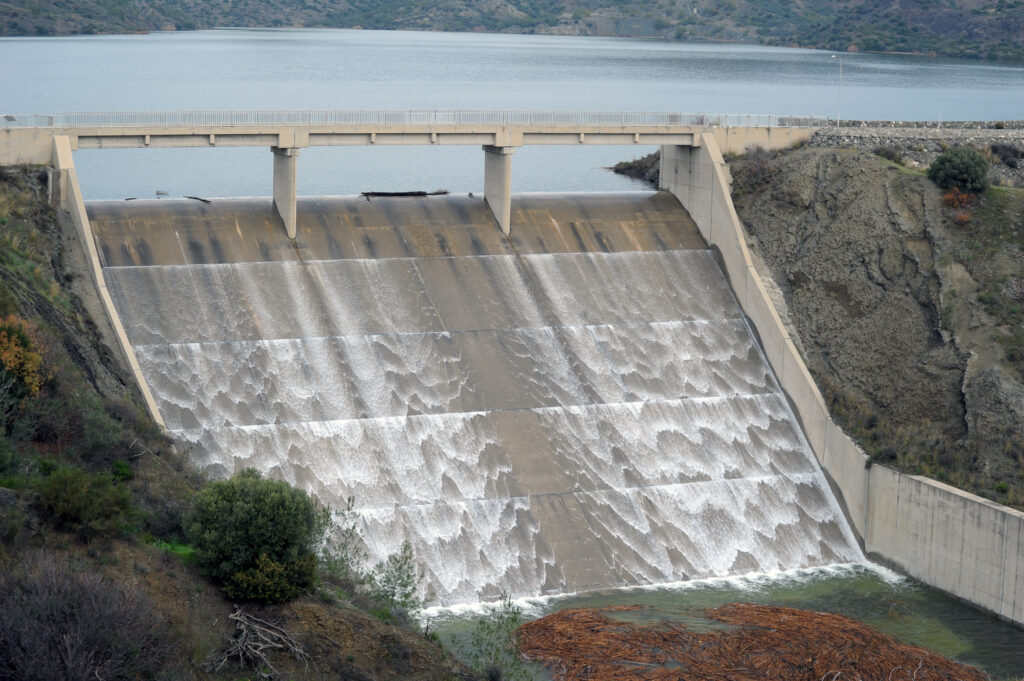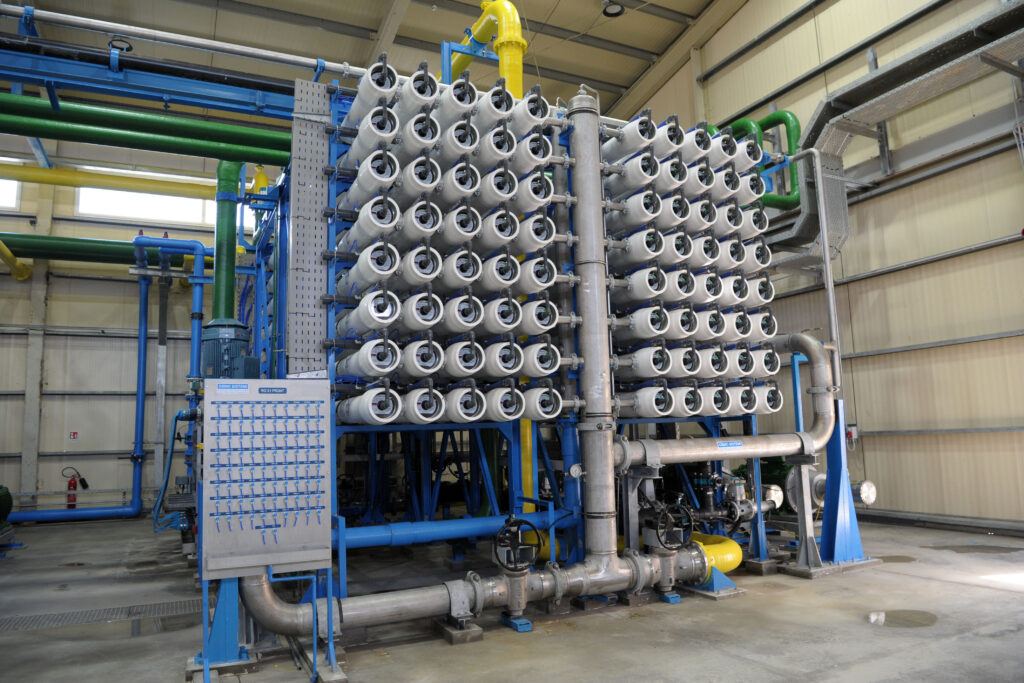Filenews 16 October 2024 - by Angelos Nicolaou
The prolonged drought of recent years, the particularly poor rainfall and the limited inflow of water to the dams leads the government to proceed with measures to address the problems of water supply next summer.
Four mobile desalination plants are planned for this purpose. At the same time, the plans provide for the complete independence from weather conditions with two new desalination plants, as well as the expansion of the existing ones.
The parliamentary committee on Agriculture and Natural Resources was informed yesterday about the government's plans regarding the country's water sufficiency, both for water supply purposes and for use in the agricultural sector.
Based on the plans of the Water Development Department, which are before the Ministry of Agriculture for approval and submission to the Council of Ministers, they concern the creation of four mobile desalination plants to serve the water needs of the areas of Limassol and Pafos. Three mobile units in Limassol and one in Paphos, all with a capacity of 10,000 cubic meters of water per day (cubic meters/day). In Limassol, the new unit that is expected to be operational next June will be in the Garylli area and concerns the treatment of water from river boreholes.

A second unit is planned at the site of EAC's power plant in Moni, where it is again expected to be built in a short period of time. A third mobile unit in the Limassol district will be built on the site of the new port of Limassol, an area that has been developed in recent years. The desalination plant in Paphos is planned to be built in the Municipality of Peyia, in the area where the creation of the Paphos marina is planned.
In relation to the two permanent desalination plants, the first will be built again at the EAC site in Moni and the second in the district of Larnaka to replace an existing obsolete plant. Extensions of the other existing permanent units in Paphos and Dhekelia are planned.
The plan of the Water Development Department was presented during yesterday's meeting by the Deputy Director of the Department, George Kazantzis. The planning, he said, includes medium and long-term actions, which have to do with increasing water production through desalination, as well as utilizing reclaimed water. Furthermore, he referred to plans to reduce water demand by addressing losses and improving water infrastructure.

Mr. Kazantzis said that the planning for next year is based on the worst-case scenario, where the inflow of water into the dams until the summer is the same as in the hydrological year that passed. He explained that the five existing desalination plants do not cover the water needs and the action plan is to cover these without taking into account rainfall.
A cry of anguish was heard in the Commission by the representatives of the District Local Government Organizations (EDA). The acting general manager of the Limassol EDA, Socrates Metaxas, warned that under the worst-case scenario and provided that before the summer the three mobile units will be installed, there will be a shortage of drinking water. "If it doesn't rain we will be facing a crisis," he said.
According to Mr. Metaxas, during the summer months the daily needs in Limassol reach 90,000 cubic meters/day, while the daily production of the desalination plant in Episkopi has a production capacity of 40,000 cubic meters / day. Therefore, he noted there is a shortage of 50,000 cubic meters/day. Even if the three mobile desalination plants are operational in the summer of 2025 with a production of 10,000 cubic meters/day. Each, in the worst-case scenario, he added, would have a deficit of 20,000 cubic meters/day.
At the same time, Mr. Metaxas referred to the effort to limit water losses. Unbilled water in EDA areas is 20-25%. By contrast, in the accession communities the losses are more than 70%. As a result, he said, consumers will now be asked to finance projects worth hundreds of millions of euros that have not been done for many years.
The president of the Pafos EDA, Charalambos Pittokopitis, in turn, sent a distress signal, noting that "the new desalination plant in the Pafos district should have taken place yesterday and not today". At the same time, he expressed his concern about the objection of the Deputy Ministry of Tourism to the plans of the new desalination plant in Paphos within the boundaries of the Akamas Municipality. He also expressed anxiety about the planning of a dam in Episkopi Pafos.
On behalf of the Larnaca EDA, it was reported that the installation of a mobile desalination plant in Larnaka was examined, without taking a decision. An effort, he added, is to keep water losses in municipal areas low, many of which have a very high percentage of unbilled water.
The Famagusta EDA reported that the effort focuses on reducing water losses from the network. The average loss rate reaches 35% while there are areas where the loss reaches 50-60%, he noted. On behalf of the WDD, it was reported that no area has been found for the siting of a mobile desalination plant in the Famagusta district.
Marios Protopapas from the finance ministry referred to prudent fiscal policy, adding that there is support where and where there is a need.
Representatives of farmers' organizations spoke of water projects dating to support farmers. Reference was made to the fact that 12 years after the construction of the Solia dam, irrigation systems are not used. They stressed that further efforts need to be made to enhance the water balance with recycled water. They noted that while the goal is to double GDP for agriculture, the key element, water, is limited. Furthermore, they described water as a national wealth, stressing that it is a national duty to protect it.
Committee on Agriculture: We are literally at five o'clock
The government should act immediately to decouple the country's water supply from weather conditions and cover the primary sector's needs for irrigation to the maximum possible, said the chairman of the parliamentary Committee on Agriculture and Natural Resources, Yiannakis Gavriel. "The prolonged drought that the country is experiencing is reflected in historically low reserves in the dams. Already the agricultural sector is feeling the consequences with large cuts in the quantities of water available for irrigation. If the government does not act immediately and accelerate its planning, the consequences will be catastrophic for the entire economy," he said.
As we have been informed, he added, plans include the construction of four new mobile desalination plants in order to assist the existing five permanent units in the country's water supply. "We have been told however that in the best-case scenario, they will operate a year from now. We cannot fail to note that the planning, which should have been done years ago, has been delayed since we are literally at too much time", according to Mr. Gabriel. The Committee on Agriculture has requested that the planning prepared by the Water Development Department to address water scarcity be submitted to it.
